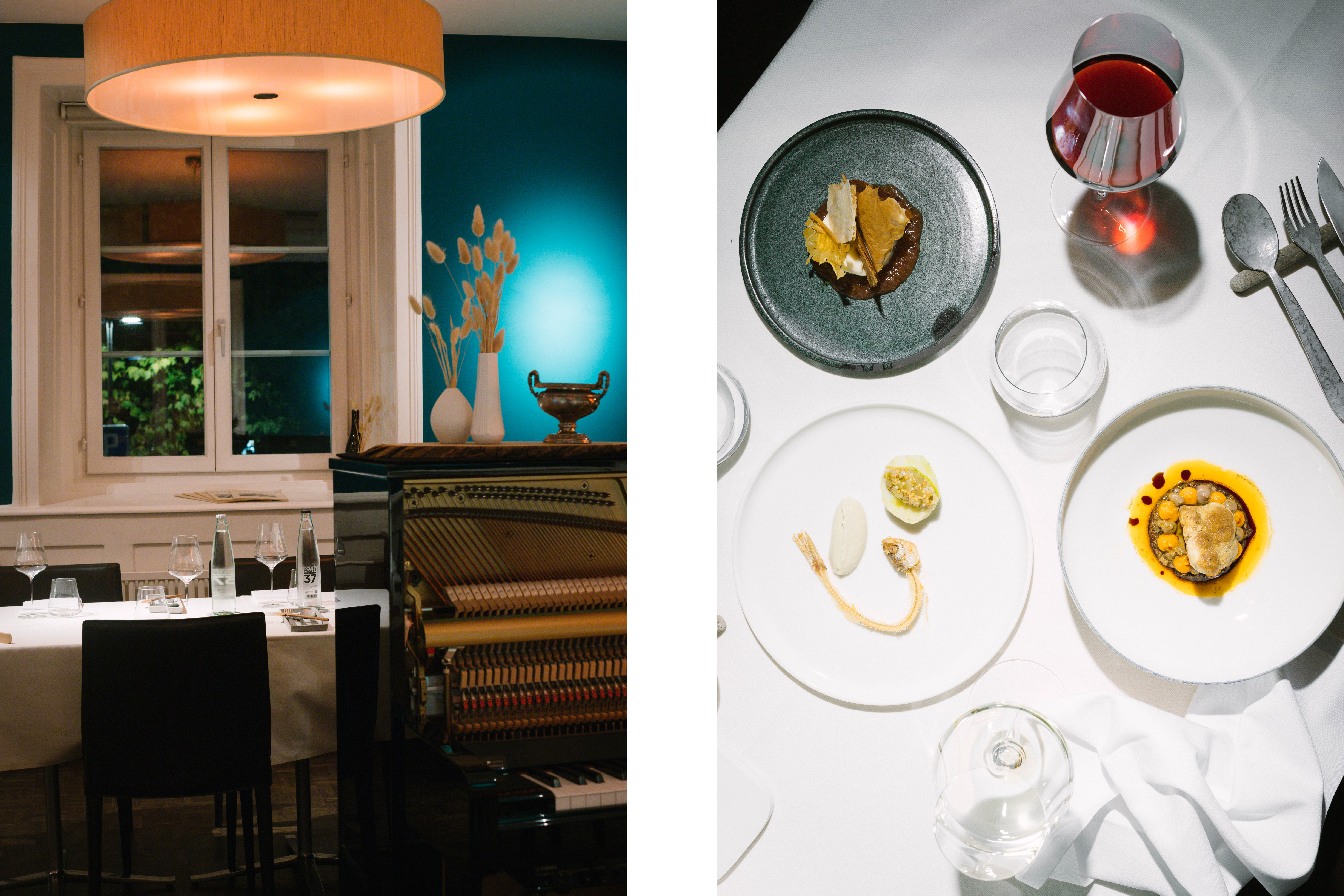Discover more SoToSo Restaurants!
Rechberg 1837
Article in collaboration with Team Rechberg
© Züriplausch, Sarah Blattner and Soil to Soul
Rechberg. 6 courses, one menu. Accompanied by wines from the region. Uncompromisingly sustainable and exclusively local.
1837: The house on Chorgasse is built, Zurich agriculture is not yet industrialized. The Rechberg takes this time as inspiration and only uses products that are not industrially bred or cultivated in his kitchen. They rely on original varieties from sustainable cultivation, as well as exciting new cultures that integrate meaningfully into today's ecological conditions. Animal products are used very selectively, always respectfully and comprehensively. Processed products are not used, and cooking avoids all artificial aids. A direct connection and personal exchange are maintained with all producers.
The menu is based exclusively on passionate, sincere craftsmanship. The wines offered at Rechberg come directly from the cellar of family-run wineries. What goes into the glass comes from sustainable sources. Everything that comes on the plate at Rechberg comes from Switzerland. This means, for example, that it is created without pepper, olive oil, chocolate, and coffee, resulting in the unique taste of the region.

© Alina Birjuk
The Rechberg is located in the Zurich Old Town and was founded in 2016 by the quartet Carlos Navarro, Celine Horst, Raphael, and Alexander Guggenbühl. Since then, the project has been continuously developed with many great contributors. New work approaches and flat hierarchies allow employees to actively participate in shaping the project.

© Basil Stücheli
FOCUS TOPICS
Seasonal and regional cuisine
Only products from local small-scale producers with close-to-nature cultivation methods are used.
Food waste / Food utilization
All food items are fully utilized, including the trimmings.
Organic products and sustainable labels
The Rechberg occasionally collaborates with producers who may not have the cost-benefit for labels but operate at least according to organic guidelines.
Use of fresh and minimally processed ingredients
Except for cheese and wine, no pre-processed or processed products are used in their menu.
Close relationship with local producers
They know the origin of every product in the kitchen and the people behind them. They are in constant communication regarding offerings and needs.
Vegetarian / Plant-based cuisine
Animal products are only used very selectively, with the focus being on vegetables, grains, and legumes.
Utilization of the whole animal
Apart from dairy products and eggs, they always work with whole animals, utilizing them from head to toe.
Existing collaborations with associations
Rechberg is a member of ProSpecierara, Slow Food, as well as local neighborhood and trade associations. Additionally, they actively engage in music through their own cultural association.
Fair working atmosphere & compensation system
Rechberg operates based on New Work principles and has a transparent compensation system that exceeds LGAV wages and rewards responsibility.
Employee well-being
They place a strong emphasis on empowerment, providing quality staff meals, high transparency, and fostering a culture of participation.
Sustainability in kitchen and restaurant equipment
They prioritize sustainability in all aspects, from utensils and glassware to clothing.
Environmental and climate-friendly measures
All purchases and processes are defined according to criteria for sustainable environmental practices.
THEIR PRODUCERS
-
Gut Rheinau
Vegetables, fruits, milk, beef, veal, pork, and flour.
Gut Rheinau is operated according to biodynamic principles. Profits generated are not taken out of Gut Rheinau, but are reinvested in the soil, animals, and human community. -
Slow Grow
Vegetables, herbs, and blossoms
The innovative way of farming is reflected not only in the final product. Those who have known the farm since Matthias and Sam took over can see the development of the surroundings. Innovation is not only evident in cultivation but also in distribution and customer interaction. SOLAWI (Solidarity-based Agriculture) involves society in the activities of the two pioneers. -
Pico
Vegetables, fruit, grains, etc.
Beat Ledermann not only represents a wholesale service at the highest level with his company but also engages with small businesses in the greater Zurich area. Everything that the Rechberg does not obtain from Gut Rheinau and Slow Grow is sourced from him. -
Forellen Glauser
Fish
The family business has been passionately operating in Bachs for over 30 years. The organic certified trout farm not only takes responsibility for the quality of the end product but also during breeding and rearing. This allows for precise tracking of where the feed comes from and what components it consists of. -
Hof Looren
Eggs
Andy Tobler and Alfred Schädeli raise laying hens at the foot of the Bachtel mountain, among other activities. Their chickens do not take laying breaks, but they allow them to live twice as long as usual, which is about 2.5 years. They raise the chicks themselves on the farm, both the females and the males.

